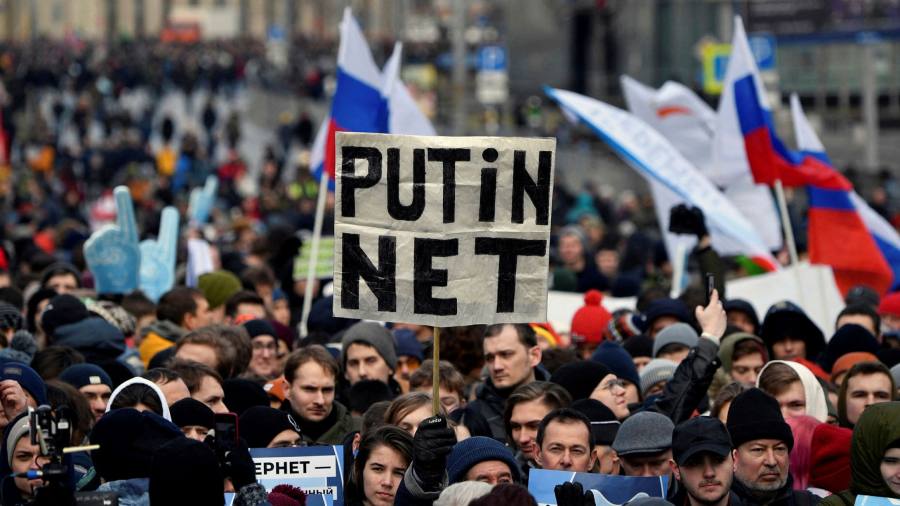Corporate borrowers kicked off 2025 with a record $83bn in dollar bond sales, capitalising on buoyant investor demand to raise debt ahead of any market volatility sparked by Donald Trump’s return to power.
Borrowing in the US dollar investment-grade and high-yield bond markets reached $83.4bn by January 8, the highest year-to-date figure since 1990, according to data from LSEG.
High-grade borrowers have led the rush, including international banks such as BNP Paribas and Société Générale, car giants such as Toyota, and heavy machinery maker Caterpillar. US banks are expected to join the fray later in January after their earnings season.
“The market is strong, so there is no need for them to delay. They’re trying to come as early as possible,” said Marc Baigneres, global co-head of investment-grade finance at JPMorgan.
The rush of new debt sales comes as spreads — the difference between the yield on corporate debt versus safer government bonds — are near multi-decade lows, spurring companies to raise funds cheaply while they can.
“There are a lot of risks to spreads — inflation picking up, the economy slowing down, the Fed potentially pausing rate cuts and even moving on to rate hikes,” said Maureen O’Connor, global head of Wells Fargo’s high-grade debt syndicate.
The average US investment-grade spread sat at just 0.83 percentage points on Wednesday, not far above its narrowest point since the late 1990s, according to ICE BOFA.
January is typically busy for debt issuance, especially by banks. But the latest deal burst comes as companies lock in cheaper debt before Trump’s inauguration — with economists warning that the incoming US president’s telegraphed policies, including trade tariffs, could be inflationary.
On Wednesday, minutes from the last Federal Reserve meeting showed that officials were also concerned about inflation and wanted to be “careful” with the pace of future rate cuts.
Big borrowers are also under pressure to refinance quickly, with $850bn of high-grade dollar debt set to mature this year and another $1tn in 2026, according to Wells Fargo calculations.
“It’s a very attractive market environment” for borrowers, said Dan Mead, head of Bank of America’s investment-grade syndicate. “You continue to see healthy investor cash balances and receptivity to the new issues coming to market, and pricing at very attractive spreads that leads to issuers looking to go sooner rather than waiting.”
Edward Al-Hussainy, senior interest rate and currency analyst at Columbia Threadneedle, said pension funds and insurance companies were “exceptionally predisposed” at the moment to buy debt.
Banks are typically first to take advantage of narrow spreads and are among the most active issuers so far. But market participants said non-financial borrowers could join the rush before the 10-year Treasury yield — a benchmark for global borrowing costs — rises any further. It now sits at about 4.7 per cent after climbing sharply in recent weeks.
“We have a couple of fairly critical risk events in January,” said O’Connor, pointing to US jobs data due on Friday, which will offer investors clues about the future path of interest rates, and Trump’s January 20 inauguration.
“We’ve heard quite a bit of rhetoric from the incoming administration on what the market could see quickly on the back of that,” O’Connor said. “I think there is a concern that that could catalyse another leg higher in Treasury yields.” Some “coupon-focused borrowers” — meaning companies focused primarily on the total yield they pay to investors — “are trying to get in front of that”, she added.
This week’s volumes, which have been condensed to just three days by shortened trading hours on Thursday, and Friday’s payrolls, follow on from a borrowing bonanza in 2024 — when global issuance of corporate bonds and leveraged loans hit a record $8tn.
While the current conditions remained favourable for sellers of debt, some buyers said they were now willing to sit on the sidelines until more alluring conditions emerge.
“The vast majority of deals are coming at levels that leave very little value on the table,” said Andrzej Skiba, head of BlueBay US fixed income at RBC GAM. “[It has] looked rather unappealing and we prefer to keep powder dry for a potential increase in volatility following the inauguration, as the market finds out this new policy mix and the Fed’s response to that.”


























